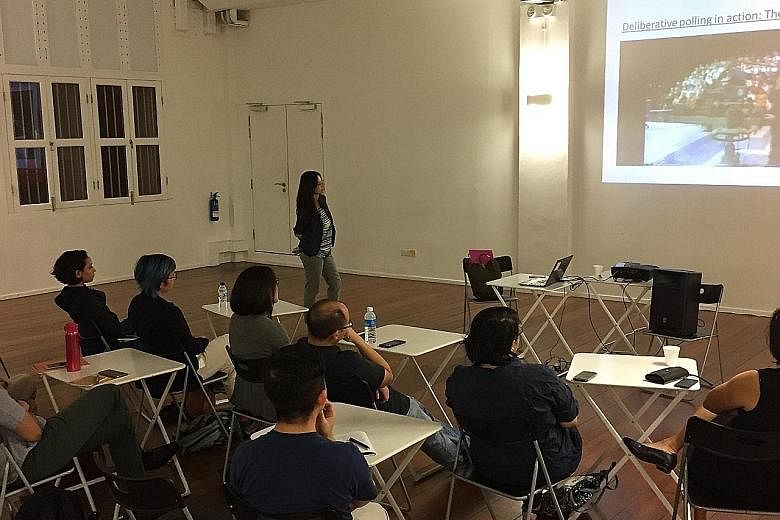The Singapore International Festival of Arts (Sifa) could be exempt from licensing requirement from next year onwards, said the National Arts Council (NAC), responding to concerns by outgoing festival director Ong Keng Sen about the event's independence.
The council said in a statement to The Straits Times that the company, Arts House Limited (AHL), which runs the festival, was not previously exempt from arts licensing because it was new.
It added, however: "With a cohesive leadership team now in place, NAC will review if AHL applies for exemption from 2018 onwards."
When approached by The Straits Times, AHL, which was formed in 2014, said applying for exemption is a direction it "would like to move towards".
The NAC was responding to Ong's comments that he was disappointed at how Sifa was not truly independent, as was his expectation when he took up the mantle of founding festival director.
Sifa replaced the old Singapore Arts Festival, which saw a dramatic drop in attendance towards the end of its 36-year run. A review, conducted from mid-2012 to 2013, recommended that the arts industry here take the lead in organising the festival.
Ong, who helmed the festival for four years, from 2014 to this year, told The Straits Times in an interview published last Tuesday that he had been excited by the idea of an arts festival run from the bottom up, with the expectation that the Government would take a back seat.
When Sifa, which is funded by the NAC, presented its first edition in 2014, it did not need to apply for arts licensing.
AHL was set up to manage the festival and allow Sifa its independence. The NAC pointed out that this was in line with a key recommendation of the committee responsible for the review.
But from 2015, the festival team had to apply for separate licences to present each work in its programme, since Sifa now came under AHL, which did not qualify for arts licensing exemptions.
The NAC acknowledged that there were instances over the past four years when "it was necessary to have dialogue with the festival team to ensure the smooth staging of productions", but noted that Ong's "vision and programming approach is distinctive" and that he has been "true to his programming vision in the last four years".
In the statement, NAC chief executive Rosa Daniel also thanked Ong "for his commitment to Sifa over the past four editions, for taking artistic risk to push boundaries in his commission of both local and international artists, and for bringing new experiences to audiences".
Ong, 54, said in the interview that he had to alter his vision for certain events to allay official fears.
He cited this year's festival opener, Art As Res Publicae, as one example. The original plan had been to train participants to debate new scripts and decide whether the controversial content within should be shown at all.
According to Ong, there was "a lot of anxiety" about the "potentially dangerous" issues discussed, as well as questions about who would be invited to the discussion. "This is not 'arm's length'," he said.
The council said in the statement: "For this year's Art As Res Publicae, NAC helped identify facilitators and participants for the symposium to discuss complex societal issues."
While the cost of running the festival has grown from $120,000 in 1977 to $8.8 million last year, the council says the staging of the shows at smaller venues has resulted in lower audience numbers.
However, in the last four years, there has been an uptick, with 22,000 attendees in 2014 and 218,000 viewers for this year's edition, including social media views (when asked, Sifa did not provide figures for physical attendees).
Festival numbers reached their peak in 2004, when there were more than 900,000 attendees.
The NAC said it hopes the festival will build on the artistic achievements of the last four years and broaden outreach across all segments of the population.
Mrs Daniel, who wished Ong the best in his future endeavours, said: "NAC is confident that AHL, in collaboration with the arts community and in partnership with key cultural institutions like the Esplanade, will ensure the festival succeeds in growing new audiences while engaging more deeply with existing audiences.
"We hope to see Sifa grow to become the platform for our artists - from the traditional arts companies to our home-grown music ensembles - to collaborate and create quality works that speak to Singapore's unique multicultural make-up."


